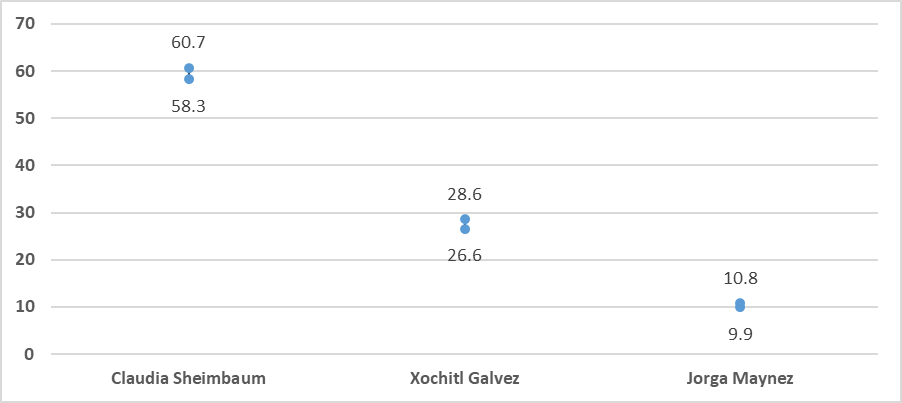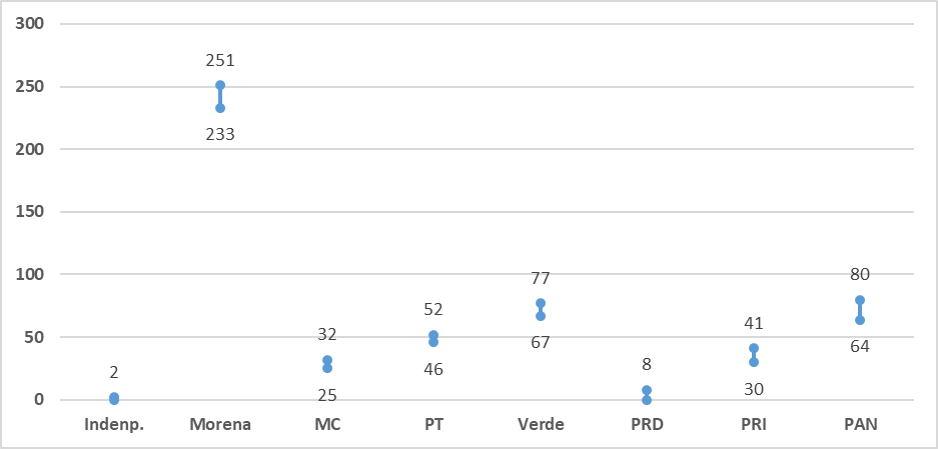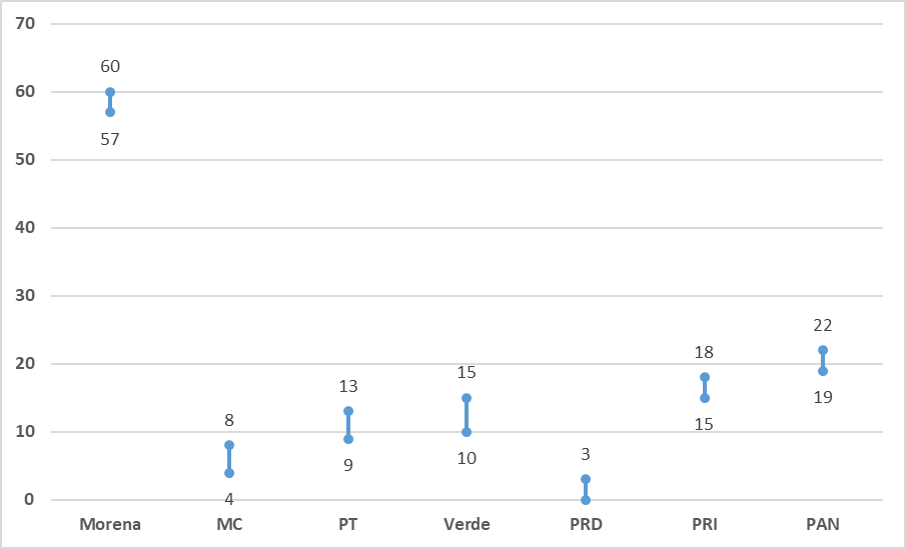Mexico Elections: Sheimbaum Wins as Expected but the Surprise is in the Legislative
The Mexican election saw Sheinbaum from MORENA likely securing 57-60% of the votes, a significant lead over Xóchitl Gálvez. The MORENA coalition is projected to gain a two-thirds majority in the Chamber of Deputies but may fall short in the Senate. This result raises concerns over potential anti-market reforms and the weakening of Mexican institutions as MORENA will likely be able to make Constitutional changes depending only on its coalition.
Figure 1: Votes for President (% of Total, Quick Count Estimates)

Source: INE
The Mexican population went to the polls to decide the next Mexican President, the 500 members of the Chamber of Deputies, and the 128 members of the Senate. All the polls pointed to a smooth victory for Sheinbaum from MORENA, but the quick count system indicates that Sheinbaum will reach between 57% and 60% of the votes, nearly a 30 percentage point advantage over Xóchitl Gálvez, who is likely to get around 26.6% to 28.8%. This substantial majority will be even larger than the one López Obrador achieved in the 2018 elections, in which he received 53% of the votes. Around 64% of Mexican voters turned out to vote, a figure more or less aligned with the historical average of other elections.
Figure 2: Seats in the Chamber of Deputies (Quick Count Estimates)

Source: INE
What caught most attention is the number of seats that MORENA and its coalition with the Labor Party and the Green Party secured. The quick count indicates that the MORENA coalition will obtain between 346 and 370 seats in the Chamber of Deputies, with MORENA itself gaining at least 233 seats. This means that at least in the Chamber of Deputies, the MORENA coalition will have the two-thirds majority needed to make constitutional changes (334 needed). In the Senate, the MORENA coalition will get between 76 and 88 seats, meaning they could still fall short of the 85 needed to make constitutional changes, although the chance of obtaining the majority is real.
Figure 3: Seats in the Senate (Quick Count Estimates)

Source: INE
Most analysts were not expecting such a strong victory for the MORENA coalition in the legislative houses. In the last elections, they were not able to secure a constitutional majority in either house, although they did obtain a simple majority (over 50% of the seats needed to pass laws). This raises several concerns that MORENA will now be able to make anti-market constitutional reforms and weaken the Mexican institutions. Some of López Obrador’s failed proposals included popular votes for the judicial system and constitutional changes to the electoral body.
The results point to a negative reaction from the Mexican Peso, which has depreciated by over 1.2% so far and is likely to continue to depreciate in the coming days. Some uncertainty also arises from Sheinbaum. She is not universally supported within MORENA and will need to address dissenting voices both from within the party and the coalition. Immediate measures will need to be taken in 2025, such as addressing the poor performance of the state oil company PEMEX, which is in bad financial health, and preparing the budget for 2025, as a fiscal adjustment is needed to prevent an unsustainable Debt/GDP path and concerns regarding electricity generation. Further uncertainty is added by the next U.S. President and their stance on Mexico’s nearshoring.